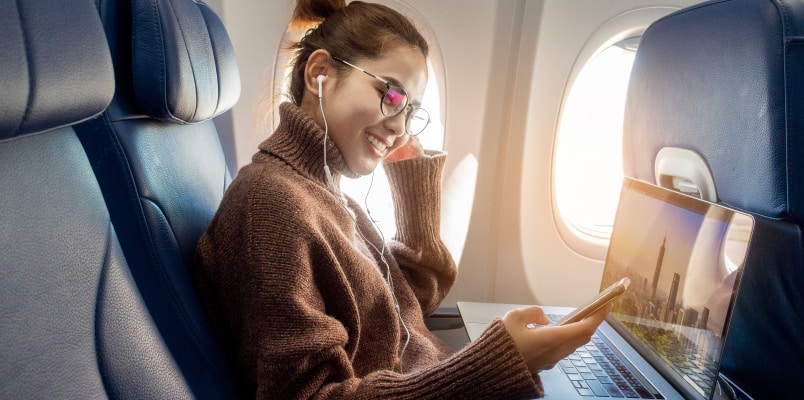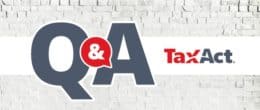A Short Self-Employed Guide to Deducting Travel Expenses


File your self employed taxes with confidence.
Backed by our $100k accuracy guarantee.
Updated for tax year 2023.
If you have to travel as part of being self-employed, you know traveling costs can add up fast. Fortunately, there are a few tax breaks available for deducting travel expenses. Follow this quick guide to learn how to lower your tax bill with business travel deductions.
Business mileage vs. business travel expenses
As a business owner, you are considered “traveling” for tax purposes when you are away from your tax home and at a business destination long enough to require sleep — generally overnight. In that instance, not only can you deduct your mileage, but you can also deduct lodging and a portion of business meals during your business trip. As of tax year 2023, you can deduct 50% of the cost of meals for business activities. If you travel to see a client during the day but return home in the evening, you can only deduct the business miles you drove to the meeting.
Determining your tax home
According to the IRS, your tax home for the purposes of determining business-related travel is the city or general area where your main place of business is located, even if that differs from where your family home is located. If you don’t have one particular place of business, your family home may count as your tax home.
If you aren’t sure how to determine your tax home, IRS Publication 463 has some additional information and helpful examples.
Vehicle expense deduction
Being self-employed allows you to deduct vehicle expenses when you drive your personal car for business purposes. That includes instances like driving to see a client, to a store to pick up supplies for your business or to a conference in another state. And when it comes to deducting those travel expenses, you must choose to deduct either the standard mileage allowance or the actual cost of your gas, oil, and other expenses. The standard mileage allowance for tax year 2023 is 65.5 cents per mile (increasing to 67 cents per mile for 2024).
Whichever method you choose, you must maintain good bookkeeping for your deductible expenses. For each trip, make sure to diligently record the date, the number of miles and the purpose of the trip. There are some handy apps out there that can make this easy. You can also calculate your deductible miles using the TaxAct® Mileage Reimbursement Calculator.
Remember, you can also deduct the cost of parking fees and tolls. Those costs are deductible in addition to other car expenses or the standard mileage rate, so make sure to include them in your recordkeeping.
Deducting travel expenses
Here’s a list of common self-employed business travel expenses you can deduct as a taxpayer:
- Meal expenses (50% deductible)
- Lodging
- Transportation costs (can include gas, airfare, car rental fees, taxis, baggage fees and other travel-related expenses)
- The cost of transporting supplies, such as display materials
- Dry cleaning and laundry while you travel
- Business expenses while traveling, such as internet and phone charges
Tax deductions: combining business and pleasure
It’s tempting to combine business and pleasure on trips when you are self-employed. If you must go to Las Vegas, why not spend a couple more days seeing the sights — and take someone along with you, perhaps?
There’s nothing wrong with enjoying business travel, but make sure you only deduct the portion of your trip that is actually for business. For example, if you stay in Las Vegas for two extra nights for personal purposes, you can’t deduct personal expenses like the hotel room and other costs accrued on those two extra days.
And unless your spouse or other companion is your employee, you generally can’t deduct their portion of travel expenses. That means you can’t deduct the second airline ticket, but you can still deduct the amount your hotel room would have cost for one person, which is often the same or not much different than it is for the two of you.
How to deduct business travel
To claim business travel expenses as a tax write-off on your income tax return, you’ll need to use Schedule C. TaxAct can help walk you through deducting business-related expenses if you choose to file with us — all you need to do is answer our detailed interview questions during the tax filing process, and we’ll take it from there.






